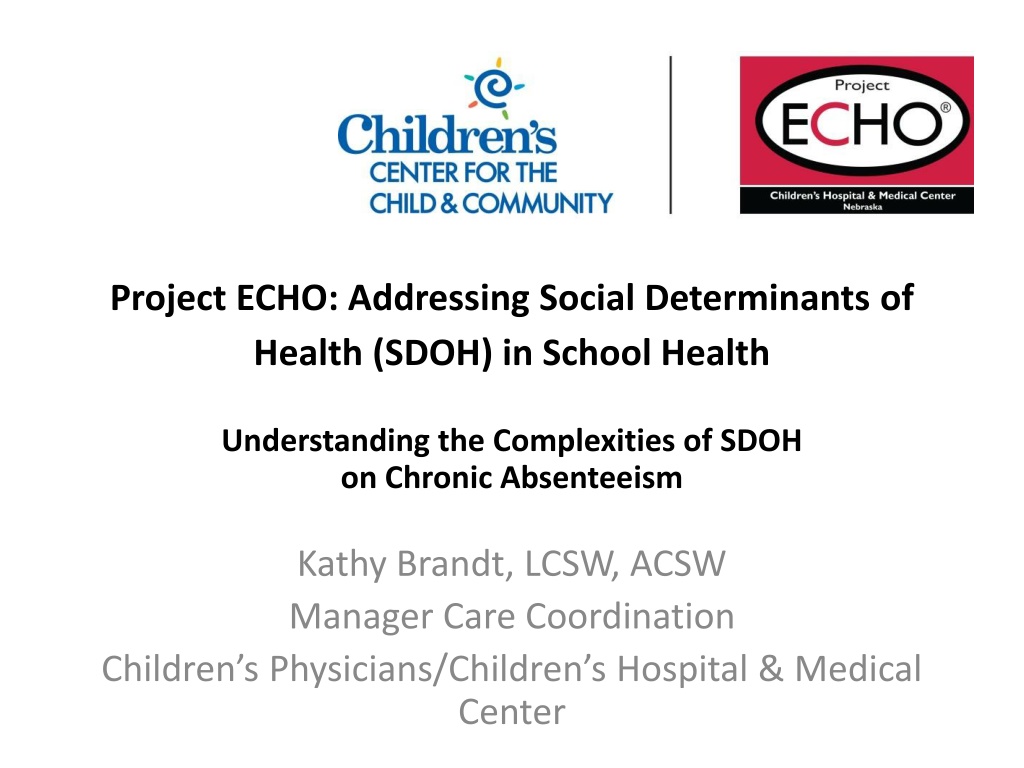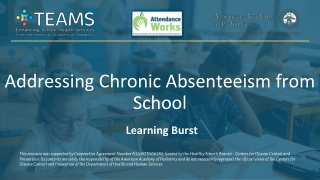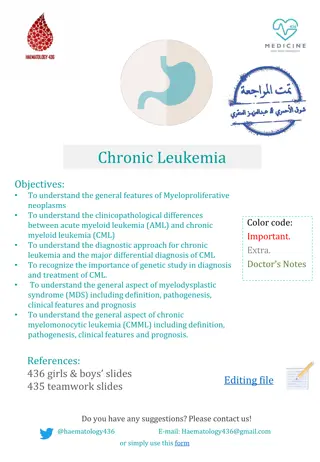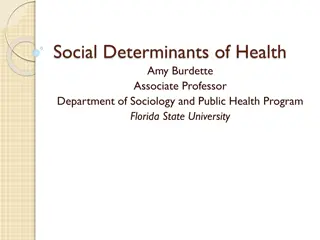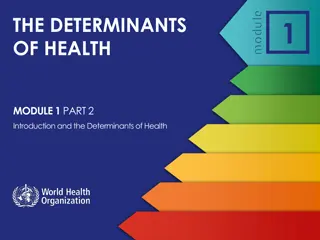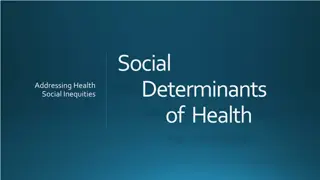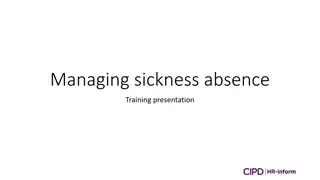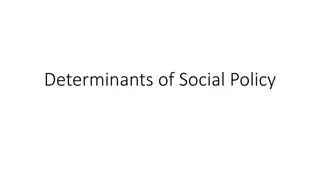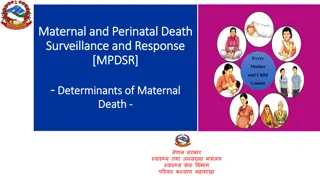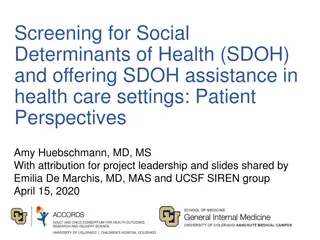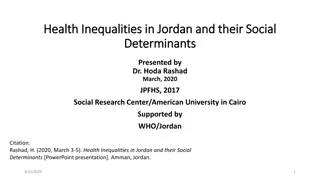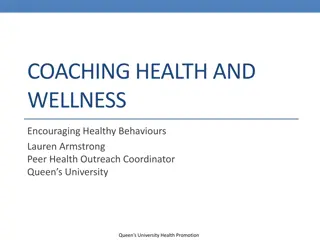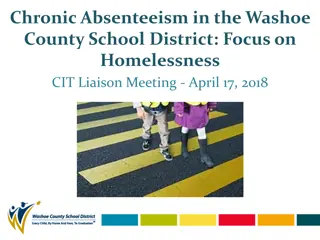Understanding Social Determinants of Health (SDOH) Impact on Chronic Absenteeism in Schools
Exploring the complexities of Social Determinants of Health (SDOH) and their influence on chronic absenteeism in school settings. This presentation delves into the definition, importance, and assessment tools for SDOH, highlighting factors like education, job status, family supports, and more. It emphasizes the critical role of school nurses in addressing SDOH to improve student health and educational outcomes.
Uploaded on Oct 03, 2024 | 0 Views
Download Presentation

Please find below an Image/Link to download the presentation.
The content on the website is provided AS IS for your information and personal use only. It may not be sold, licensed, or shared on other websites without obtaining consent from the author. Download presentation by click this link. If you encounter any issues during the download, it is possible that the publisher has removed the file from their server.
E N D
Presentation Transcript
Project ECHO: Addressing Social Determinants of Health (SDOH) in School Health Understanding the Complexities of SDOH on Chronic Absenteeism Kathy Brandt, LCSW, ACSW Manager Care Coordination Children s Physicians/Children s Hospital & Medical Center
1/13/2021 Presenter Disclosures Consultant/ Speakers bureaus No Disclosures Research funding No Disclosures Stock ownership/Corporate boards-employment No Disclosures Off-label uses No Disclosures
Overview & Learning Objectives 1. Participants will review the definition of SDOH 2.Participants will continue to gain an understanding the importance of SDOH within the school setting and how they impact learning 3. Participants will be given a tool to assess for SDOH that can be modified for use by school nurses.
Definition of SDOH Conditions in the places where people live, learn, work and play that affect a wide range of health risks and outcomes (defined by the CDC) The economic and social conditions that shape the health of individuals and communities (from the American Academy of Pediatrics)
Examples of SDOH Education Job status Family/social supports Income/poverty Community safety Transportation Housing/homelessness Food insecurity Mental health Health behaviors (alcohol use, tobacco use, diet & exercise, sexual activity) Access to care
A students health is a combination of numerous factors. Health behaviors make up 30% of overall health.
Why should school nurses understand SDOH and assess for concerns? Research shows that health and education are linked: healthier students and better education yield greater health outcomes over a lifetime. Research also shows that having nurses in schools is associated with better child physical and mental health
Children with unmet social needs are familiar to hospitals Non-compliant Frequent ER visits for inability to control chronic illnesses or issues with failure to thrive Stressed parents Lack of engagement in care Prolonged illness for persistent minor health problems
Children with unmet social needs are familiar to schools Lack of engagement by parents in education Chronic absenteeism due to illnesses or a variety of family stressors Frequent visits to the nurse s office for minor health problems or chronic illnesses that are not well controlled
You probably already know these children but may not understand why they are frequently absent or why they are constantly in your office. Your ability to ask the right questions and provide resources to students and their families can have a positive affect on both their long-term health and their education.
Social Determinants of Health Screener Yes No 1 Are you worried that in the next 2 months, you may not have a safe or stable place to live? (eviction, being kicked out, homelessness) 2 Are you worried that the place you are living now is making you sick? (has mold, bugs/rodents, water leaks, not enough heat) 3 In the past three months, has the electric, gas, oil or water company threated to shut off services to your home? 4 In the last 12 months, did you worry that your food could run out before you got money to buy more? 5 In the last 3 months, has lack of transportation kept you from medical appointments or getting your medications? 6 In the last 3 months, did you have to skip buying medications or going to doctor s appointments to save money? 7 Do you need help getting child care or care for an elderly or sick adult? 8 Do you need legal help? (child/family services, immigration, housing discrimination, domestic issues, etc)? 9 Are you finding it hard to get along with a partner, spouse, or family members that it is causing you stress? 10 Does anyone in your life hurt you, threaten you, frighten you or make you feel unsafe?
Is a student ready to learn if: They don t get enough to eat? They are fearful of violence in their neighborhood? They live in a house that is unsafe or doesn t have water or electricity? They are homeless? They have a chronic health condition and are not able to access the healthcare that they need?
